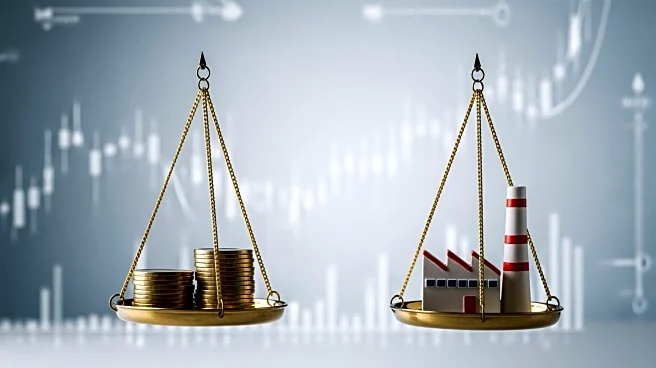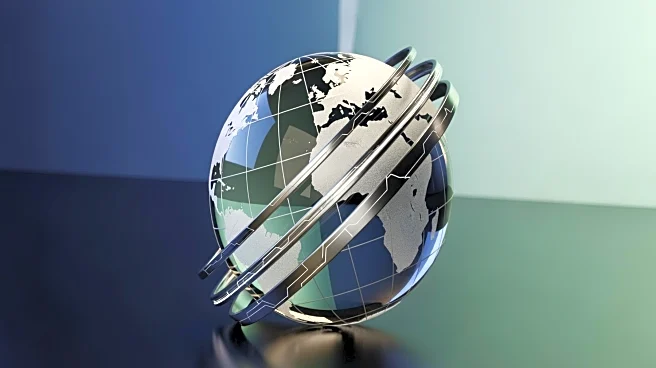What's Happening?
A recent study conducted by researchers at the San Francisco Federal Reserve has revealed that tariffs, contrary to conventional wisdom, may lead to lower inflation by negatively impacting economic activity
and employment. The study, which examined 150 years of tariff data in the U.S. and abroad, suggests that higher tariffs result in reduced economic activity, increased unemployment, and lower inflation in the short term. This finding challenges the standard economic models that predict an increase in consumer price index (CPI) inflation following tariff hikes. The study posits that tariffs create uncertainty, affecting consumer and investor confidence, which in turn depresses economic activity and puts downward pressure on inflation. Additionally, tariffs may cause a decline in asset prices, further reducing demand and contributing to higher unemployment and lower inflation.
Why It's Important?
The implications of this study are significant for U.S. economic policy and public sentiment. President Trump's tariffs have been a contentious issue, with many Americans expressing anger over rising costs of food, utilities, and insurance. While the study suggests that tariffs could eventually lead to better inflation numbers, it also indicates a weaker economy and labor market. This presents a dilemma for policymakers who must balance inflation control with economic growth and employment stability. The study's findings could influence future tariff policies and economic strategies, especially as voters demand improved affordability and lower prices. The broader impact on financial markets, consumer confidence, and political outcomes could be substantial, as tariffs continue to be a polarizing topic.
What's Next?
In response to voter dissatisfaction, President Trump recently announced the removal of tariffs on commodities such as beef and coffee. This decision comes after significant Republican losses in off-year elections, attributed to public frustration over affordability issues. Moving forward, Federal Reserve Chairman Jerome Powell and other policymakers anticipate a temporary inflation boost from tariffs, followed by a cooling trend. The resilience of the U.S. economy amid tariff challenges, coupled with the ongoing AI boom, suggests potential for recovery. However, employment growth remains sluggish, influenced by both tariffs and immigration policies. The administration may need to reassess its approach to tariffs and economic policy to address voter concerns and stabilize the labor market.
Beyond the Headlines
The study highlights deeper economic and social implications of tariff policies. The concept of affordability, distinct from the cost of living crisis, is emerging as a critical issue for voters. As tariffs impact asset prices and consumer confidence, the long-term effects on economic inequality and social stability could be profound. The study also raises questions about the ethical dimensions of trade policies and their impact on global economic relations. As the U.S. navigates these challenges, the balance between protecting domestic industries and fostering international trade partnerships will be crucial.









